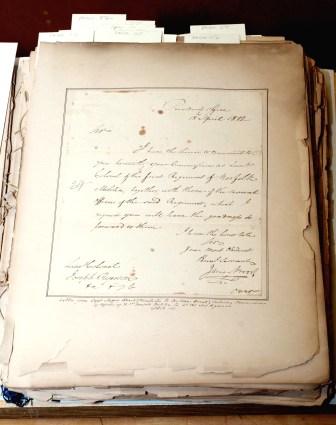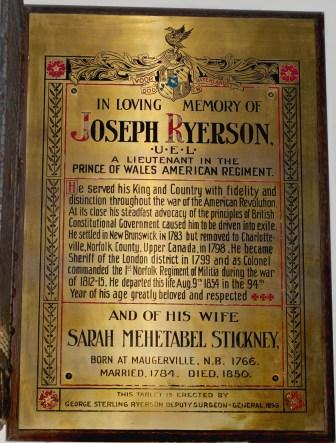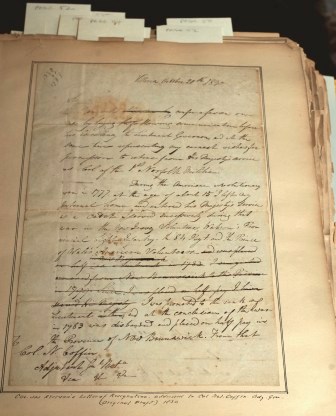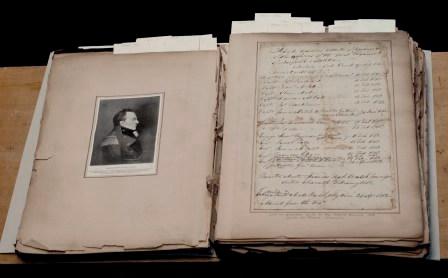As 2012 and the commemoration of the War of 1812 draws to an end, we invite you to take one more look back.
June 18th 2012 marked the two hundred year anniversary of the War of 1812. The War of 1812 was a military conflict declared by the United States onto Great Britain because the United States felt continuous economic restrictions and resistance to expansion from Great Britain. Invasions on both sides were either unsuccessful or temporary, and on February 20th, 1815, the Treaty of Ghent was issued and peace was restored.
Canada celebrates the war as laying the foundation for its future nationhood as well as its victory in preventing the United States from expanding onto its territory. Toronto Metropolitan University is named after Egerton Ryerson, a great patron of the educational system in Canada. Egerton Ryerson became an honoured citizen for his contributions to his community, much like his father had but for different reasons. His father, Joseph Ryerson, served in numerous official capacities his entire life, being just fifteen years old when he joined the army for the first time.
In 1812, Isaac Brock served Joseph Ryerson a certificate of commission as the Lieutenant Colonel Commanding the First Regiments of the Norfolk Militia. His brother, Samuel Ryerson, also served in the war in repelling the American invaders as did Joseph’s three eldest of six sons, George, William, and John. Egerton’s young age prevented him from following in their footsteps and he instead focused on his studies, which led him to becoming a notable person as an educator, minister, and politician.

When the War ended, Joseph Ryerson and his family went on to continue life in the County of Norfolk. Joseph Ryerson handed in his letter of resignation in 1830 not out of an unwillingness to serve but from an inability to do so due to illness and advanced age.
The images above and below are from the Ryerson Family Papers. They are a collection of documents and correspondence of four generations of the Ryerson family, including that pertaining to Joseph Ryerson and his service in the War. His efforts during the War, as well as that of all those involved, are remembered and recognized two hundred years later and for many years to come.


